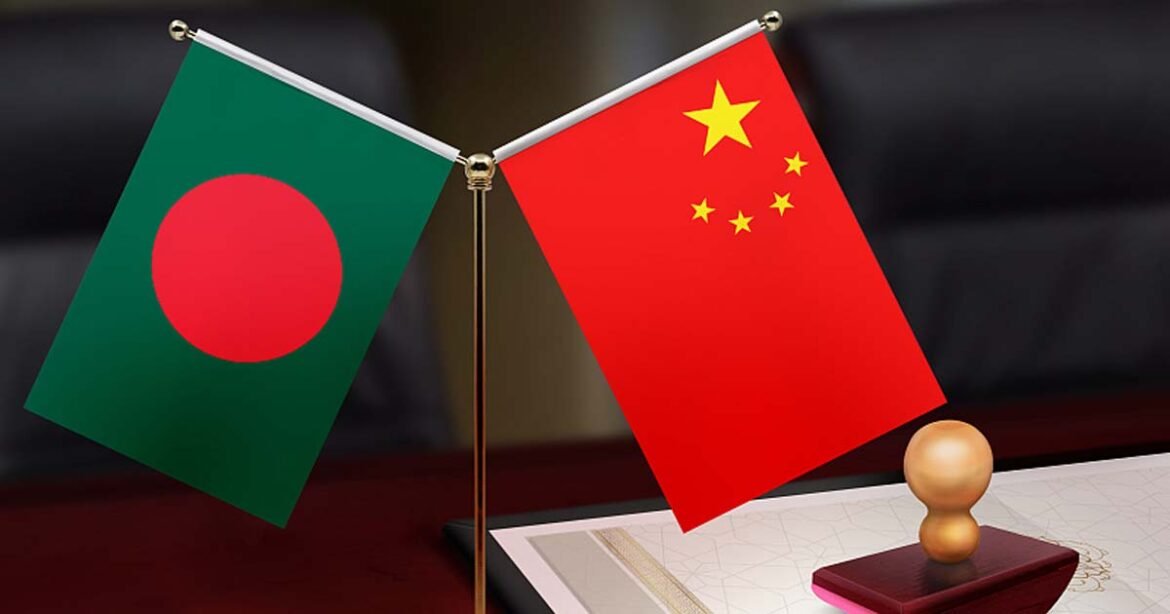China has expressed its readiness to assist Bangladesh and other nations in opposing power politics and hegemonism while upholding their sovereignty and countering interference from global powers. In a press conference held in Beijing, Chinese foreign ministry spokesman, Wang Wenbin, accused the United States of meddling in the internal affairs of Bangladesh and other developing countries under the pretext of democracy and human rights. He expressed China’s commitment to assisting Bangladesh and other nations in upholding their sovereignty and safeguarding their interests from external interference.
You can also read: PM Hasina’s vision: uniting nations for social justice and sustainable development
China supports Bangladesh’s sovereignty
Emphasising the importance of independent domestic and foreign policies, China stands alongside Bangladesh in pursuing a development path that aligns with its national realities. “We stand ready to work together with Bangladesh and other countries to oppose all forms of hegemonism and power politics, uphold the UN-centred international system, the international order underpinned by international law, and the basic norms governing international relations based on the purposes and principles of the UN Charter,” stated Wenbin, emphasising China’s dedication to building a community with a shared future for mankind. The Chinese embassy in Dhaka echoed these sentiments in a Facebook post, underscoring the traditionally friendly relationship between China and Bangladesh.
“China firmly supports Bangladesh in safeguarding its sovereignty, independence, and territorial integrity, upholding independent domestic and foreign policies, and pursuing a development path that suits its national realities,” stated the embassy’s post.

Deputy director of information at the Ministry of Foreign Affairs of China
“PM Hasina’s statement reflects international sentiment”
The Chinese spokesperson echoed Prime Minister Sheikh Hasina’s recent remarks, stating that her criticism of US sanctions against Bangladesh reflects the strong position of the Bangladeshi people. Wenbin also highlighted that Prime Minister Sheikh Hasina’s criticism of US sanctions on the Rapid Action Battalion (RAB) resonates with a significant portion of the international community, especially the developing world. Furthermore, Wenbin pointed out the selective approach of certain countries, highlighting their failure to address their own issues such as racial discrimination, gun violence, and drug proliferation while interfering in the internal affairs of nations like Bangladesh. He remarked, “Prime Minister Sheikh Hasina spoke not just about the strong position of the Bangladeshi people, but also the mind of a large part of the international community, especially the developing world.”
The prime minister’s remarks questioned the selective approach of certain countries that overlook their own internal issues while interfering in the affairs of developing nations. “While turning a blind eye to its own racial discrimination, gun violence, and drug proliferation problems, a certain country has long been interfering in the internal affairs of Bangladesh and many other developing countries under the pretext of democracy and human rights,” stated Wenbin, expressing solidarity with Prime Minister Hasina’s stance.
Standing united against power politics
The united front demonstrated by Bangladesh and China in countering power politics reflects a deepening partnership based on shared values and mutual respect. As global power dynamics continue to evolve, the collaboration between these two nations highlights the significance of upholding independence and resisting external interference. Bangladesh’s determination to assert its sovereignty and pursue its own development path, as supported by China, echoes the sentiments of a growing number of nations seeking to break free from the influence of major powers. The joint commitment to opposing hegemonism and power politics fosters an environment conducive to the establishment of a more equitable and balanced international order.
Upholding independence, countering interference
China’s commitment to supporting Bangladesh in safeguarding its sovereignty and countering external interference also aligns with the growing sentiment among the developing nations around the world. The Chinese government’s stance reflects a broader global sentiment that seeks to challenge the influence of major powers in shaping the internal affairs of smaller nations. This sentiment highlights the need for a more balanced and equitable international order.
To conclude, China’s readiness to collaborate with Bangladesh and other nations in countering power politics and upholding sovereignty showcases a shared commitment to an international system based on the principles of the United Nations Charter. As global power dynamics continue to evolve, it is imperative for nations to assert their independence and pursue their unique development paths without succumbing to external interference. The voices of Prime Minister Sheikh Hasina and the Chinese foreign ministry spokesperson echo the growing global sentiment, calling for a community built on shared aspirations and mutual respect, liberated from the influence of major powers. Through their strengthened alliance, Bangladesh and China lay the foundation for a future marked by self-determination and prosperity, heralding a new era that rejects the perils of external meddling and power-driven politics.


